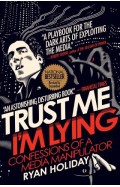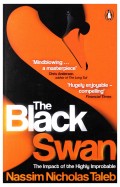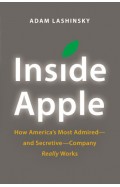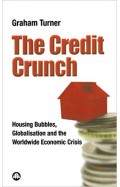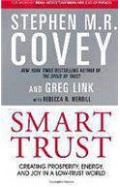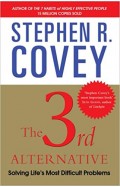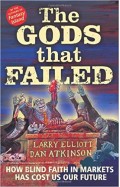The Price of Money: How to Prosper in a Financial World That’s Rigged Against You
By: Rob Dix
-
Rs 3,596.25
- Rs 4,795.00
- 25%
You save Rs 1,198.75.
Due to constant currency fluctuation, prices are subject to change with or without notice.
THE PHENOMENAL SUNDAY TIMES BESTSELLER
'Fascinating' Ed Conway, Economics Editor, Sky News
'Excellent' Laura Whateley, author of Money: A User's Guide
'Brilliant' Iain Dale, LBC Presenter
Learn how to make better financial decisions by understanding how the world of money really works.
Why is everything from cars to coffee suddenly getting more expensive?
How can the government produce billions out of thin air while your savings are shrinking?
And what can you do to get ahead in a time of economic chaos?
For centuries, working hard and saving up diligently would have set you up for financial security and a comfortable retirement. Not anymore.
Over the last 50 years, we've entered a new financial world - one where your savings lose value faster than you can build them, a global mountain of debt piles up ever higher, and most people slip backwards however hard they try.
In The Price of Money, a leading investment expert explains what's changed - and what you should do now we're here. You'll learn why currencies the world over have lost 99 per cent of their value, and how to use future declines to your advantage. You'll understand how the government can produce hundreds of billions out of thin air, and which investments benefit when they do. Most importantly, you'll be shown what's coming next - and how to position yourself to gain rather than suffer.
You don't need even the slightest knowledge of economics to read this book - just a desire to understand why the world of money is working against you, and what to do about it.
_
'Pithy and punchy . . . Profoundly useful for anyone wanting to understand why the current global economy is in such a mess, and what that might mean for your own finances' Gillian Tett
'After you've read Rob Dix's short, sharp introduction, you will know more than most ordinary people about how money works - and also (I'm sorry to say) rather more than most Cabinet ministers too' Merryn Somerset-Webb
THE PHENOMENAL SUNDAY TIMES BESTSELLER
'Fascinating' Ed Conway, Economics Editor, Sky News
'Excellent' Laura Whateley, author of Money: A User's Guide
'Brilliant' Iain Dale, LBC Presenter
Learn how to make better financial decisions by understanding how the world of money really works.
Why is everything from cars to coffee suddenly getting more expensive?
How can the government produce billions out of thin air while your savings are shrinking?
And what can you do to get ahead in a time of economic chaos?
For centuries, working hard and saving up diligently would have set you up for financial security and a comfortable retirement. Not anymore.
Over the last 50 years, we've entered a new financial world - one where your savings lose value faster than you can build them, a global mountain of debt piles up ever higher, and most people slip backwards however hard they try.
In The Price of Money, a leading investment expert explains what's changed - and what you should do now we're here. You'll learn why currencies the world over have lost 99 per cent of their value, and how to use future declines to your advantage. You'll understand how the government can produce hundreds of billions out of thin air, and which investments benefit when they do. Most importantly, you'll be shown what's coming next - and how to position yourself to gain rather than suffer.
You don't need even the slightest knowledge of economics to read this book - just a desire to understand why the world of money is working against you, and what to do about it.
_
'Pithy and punchy . . . Profoundly useful for anyone wanting to understand why the current global economy is in such a mess, and what that might mean for your own finances' Gillian Tett
'After you've read Rob Dix's short, sharp introduction, you will know more than most ordinary people about how money works - and also (I'm sorry to say) rather more than most Cabinet ministers too' Merryn Somerset-Webb
The Price of Money: How to Prosper in a Financial World That’s Rigged Against You
By: Rob Dix
Rs 3,596.25 Rs 4,795.00 Ex Tax :Rs 3,596.25
The Price of Money - How to Prosper in a Financial World That's Rigged Against You
By: Rob Dix
Rs 2,335.50 Rs 2,595.00 Ex Tax :Rs 2,335.50
Zubin Mehta: A Musical Journey (An Authorized Biography)
By: VOID - Bakhtiar K. Dadabhoy
Rs 472.50 Rs 1,050.00 Ex Tax :Rs 472.50
Get Me Out of This Book - Rules and Tools for Being Brave
By: Deborah Cholette
Rs 1,196.25 Rs 1,595.00 Ex Tax :Rs 1,196.25
Life Is Hard - How Philosophy Can Help Us Find Our Way
By: Kieran Setiya
Rs 2,596.75 Rs 3,995.00 Ex Tax :Rs 2,596.75
When McKinsey Comes to Town - The Hidden Influence of the World's Most Powerful Consulting Firm
By: Walt Bogdanich
Rs 2,466.75 Rs 3,795.00 Ex Tax :Rs 2,466.75
Trust Me I'm Lying - Confessions of a Media Manipulator
By: Ryan Holiday
Rs 2,011.75 Rs 3,095.00 Ex Tax :Rs 2,011.75
The Black Swan The Impact Of The Highly Improbable
By: Nassim Nicholas Taleb
Rs 2,965.50 Rs 3,295.00 Ex Tax :Rs 2,965.50
Inside Apple How Americas Mo Admired And Secretive Company Really Works
By: Adam Lashinsky
Rs 1,012.50 Rs 1,350.00 Ex Tax :Rs 1,012.50
Buyology How Everything We Believe About Why We Buy Is Wrong
By: Martin Lindstrom
Rs 2,515.50 Rs 2,795.00 Ex Tax :Rs 2,515.50
The 3rd Alternative Solving Life s Most Difficult Problems
By: Stephen Covey
Rs 516.75 Rs 795.00 Ex Tax :Rs 516.75
Get Me Out of This Book - Rules and Tools for Being Brave
By: Deborah Cholette
Rs 1,196.25 Rs 1,595.00 Ex Tax :Rs 1,196.25
Life Is Hard - How Philosophy Can Help Us Find Our Way
By: Kieran Setiya
Rs 2,596.75 Rs 3,995.00 Ex Tax :Rs 2,596.75
When McKinsey Comes to Town - The Hidden Influence of the World's Most Powerful Consulting Firm
By: Walt Bogdanich
Rs 2,466.75 Rs 3,795.00 Ex Tax :Rs 2,466.75
Trust Me I'm Lying - Confessions of a Media Manipulator
By: Ryan Holiday
Rs 2,011.75 Rs 3,095.00 Ex Tax :Rs 2,011.75
No recently viewed books available at the moment.
Zubin Mehta: A Musical Journey (An Authorized Biography)
By: VOID - Bakhtiar K. Dadabhoy
Rs 472.50 Rs 1,050.00 Ex Tax :Rs 472.50
The Price of Money: How to Prosper in a Financial World That’s Rigged Against You
By: Rob Dix
Rs 3,596.25 Rs 4,795.00 Ex Tax :Rs 3,596.25
The Price of Money - How to Prosper in a Financial World That's Rigged Against You
By: Rob Dix
Rs 2,335.50 Rs 2,595.00 Ex Tax :Rs 2,335.50
Get Me Out of This Book - Rules and Tools for Being Brave
By: Deborah Cholette
Rs 1,196.25 Rs 1,595.00 Ex Tax :Rs 1,196.25
Life Is Hard - How Philosophy Can Help Us Find Our Way
By: Kieran Setiya
Rs 2,596.75 Rs 3,995.00 Ex Tax :Rs 2,596.75
When McKinsey Comes to Town - The Hidden Influence of the World's Most Powerful Consulting Firm
By: Walt Bogdanich
Rs 2,466.75 Rs 3,795.00 Ex Tax :Rs 2,466.75
Trust Me I'm Lying - Confessions of a Media Manipulator
By: Ryan Holiday
Rs 2,011.75 Rs 3,095.00 Ex Tax :Rs 2,011.75












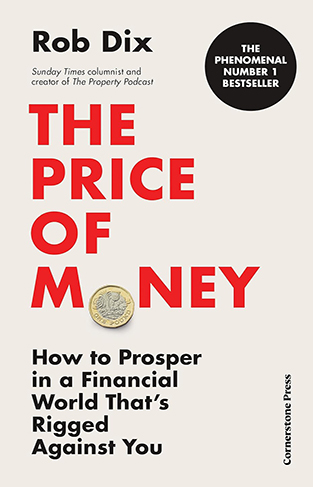
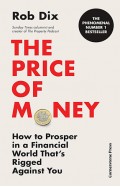
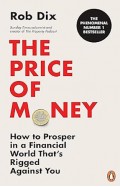
-120x187.jpg?q6)








